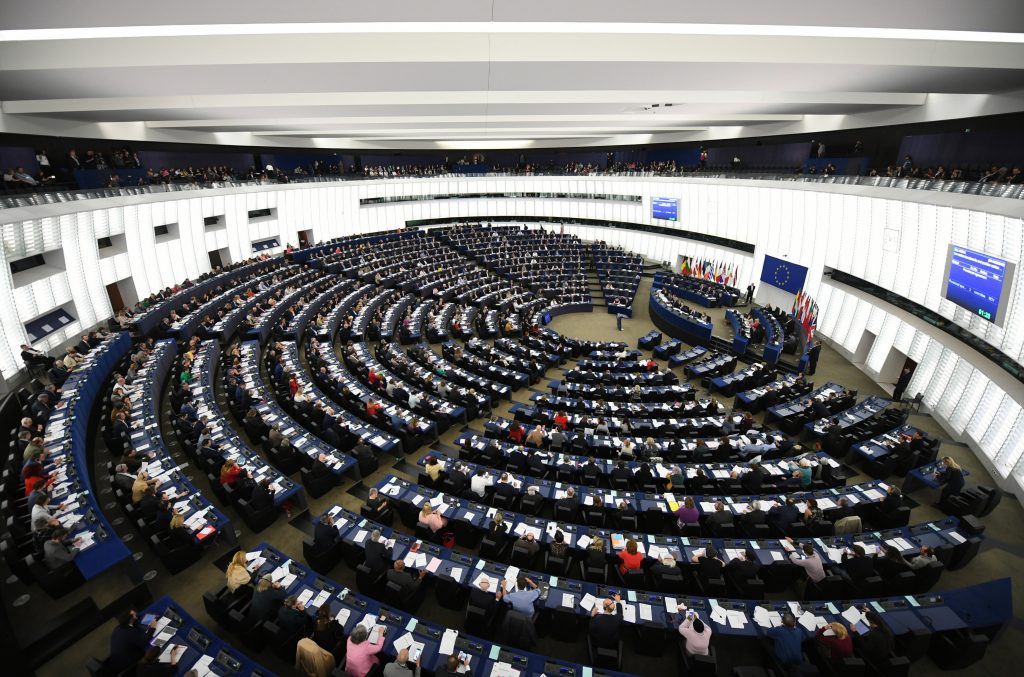The https://english.atlatszo.hu use cookies to track and profile customers such as action tags and pixel tracking on our website to assist our marketing. On our website we use technical, analytical, marketing and preference cookies. These are necessary for our site to work properly and to give us inforamation about how our site is used. See Cookies Policy
European Parliament approves stricter rules and transparency regarding General Expenditure Allowance given to MEPs
The European Parliament approved new rules at its Tuesday plenary session that will make the spending of the General Expenditure Allowance (GEA) given to MEPs more transparent. The GEA was put into the limelight after a team of international investigative journalists uncovered several cases of misuse of the funds. The 13 amendments were proposed by Hungarian MEP Benedek Jávor on behalf of the Greens/EFA group.
Members of the European Parliament (MEPs) receive several different allowances on top of their salaries. The biggest amount is the General Expenditure Allowance (GEA) that they can use to cover their costs in their home countries. These costs include renting office space and paying for IT, postage and phone bills.
MEPs receive 4513 euros a month as GEA. This means that the European Union spends roughly 40 million euros on this – which is a significant amount of money.
However, MEPs do not need to account for how they are spending this money. They do not need to present invoices and they do not need to refund the money that they do not spend.
This will change: the European Parliament approved 13 amendments at its March 26 plenary session which aims at making the spending of GEA more transparent. You can read the amendments here and here.
The amendments were proposed by Hungarian MEP Benedek Jávor on behalf of the Greens/EFA group. Jávor told Átlátszó that he is satisfied with the result of the vote because it strengthened positions that the EP has already approved. These regulate how MEPs can spend the GEA, requires them to keep GEA on a separate bank account, to keep invoices about how they spend the money and that they need to refund the money they do not spend at the end of their term.
On top of these, the EP approved new rules that the Greens have been fighting for for a long time. The in-house auditing service of the EP will have to examine the spending of 5 percent of MEPs and publish its findings. MEPs will have to prepare a summary of how they spend the GEA. Auditors will have to examine the expenditures of MEPs every year and MEPs will have to publish the auditor’s report.
’The most important thing here is probably not the text of certain amendments but that we were able to create a wide coalition around this topic. This coalition includes the majority of the left at the EP but it also includes many conservative MEPs in EPP and ECR from Western Europe’ Jávor said.
The implementation of the new rules will be delayed, though. Jávor thinks that the European elections are making this topic sensitive. ’The new rules were supposed to be implemented a long time ago but the leadership of the EP was preventing the implementation of the new rules and stretched out the debate on this topic so long that there is very little chance that substantive steps will be taken in this term because the European elections are coming up.’
Jávor added that the Greens will try to have a meeting of the working group of the EP on this topic before the elections anyway and try to have new rules approved that will be binding for the new Parliament.
If this does not happen, then the most important thing is to prevent the new leaders of the EP from using delaying tactics again, he added.
The Greens have been fighting for these changes for a long time. It was only one and a half year ago that Jávor said in an interview that there is little will within the EP for the new rules – but they succeeded this week eventually. He says that success needed many things. One of these was constant pressure and introducing the amendments every year. Interest from journalists also helped because that kept the public informed and showed the leaders of the EP that there is a public demand to make expenditures more transparent.
’And, of course, as the elections were approaching everyone suddenly seemed interested in showing that they are transparent and do not want to be labeled as someone trying to keep their spending secret’ Jávor added.
’MEPs from many countries have already been very transparent about their expenses. But it is just natural that the approaching elections are making even those MEPs care about transparency who had not been paying attention to this topic until now’ he says.
Jávor says that it is possible that the newly elected Parliament will try to backtrack on GEA transparency. ’However, the fact that such a huge majority backed these amendments might guarantee that they will be implemented.’
The MEP Project
In 2015 a group of European journalists started the MEP Project to find out how MEPs spend the GEA. The Hungarian partner in the project was Atlatszo.
The team of journalists uncovered many irregularities. Among several other things, they found non-existing offices that MEPs said they were paying for. Some MEPs were paying rent to themselves. This put significant pressure on the EP in 2017 when the findings of the MEP Project were published.
European Parliament under pressure for spending taxpayer money on ‘ghost offices’
Each member of the European Parliament receives a so-called General Expenditure Allowance (GEA), costing the EU around €40 million annually. The 4342 euros every month are intended to fund an office in their own country, but following research by journalists at ‘The MEPs Project,’ it seems the funds are potentially being misused.
The European Anti-Fraud Office immediately said that they will investigate MEPs who pay rent to companies owned by themselves. Director-General of OLAF, Giovanni Kessler said there was a ’structural problem’ with GEA. President of the EP Antonio Tajani promised ’stricter control’ of GEA spending at the time, but nothing happened.
The Greens/EFA group proposed amendments to enhance transparency of GEA in 2017 but these were rejected by the EP at the time. In 2018 the 15-member leadership of the EP, led by Tajani, also rejected a proposal that would have made GEA spending more transparent.
Journalists who wanted to learn how MEPs were spending their GEA were also rebuffed. They MEP Project team filed freedom of information requests with the European Parliament, asking to see the relevant documents but their request was denied. They turned to the Court of Justice of the European Union but the court denied their request.
Written by Katalin Erdélyi
You can read the original, Hungarian-language story here.
Cover image: The plenary session of the European Parliament in Strasbourg on March 26, 2019. Photo by MTI/EPA/Patrick Seeger

Share:
Your support matters. Your donation helps us to uncover the truth.
- PayPal
- Bank transfer
- Patreon
- Benevity
Support our work with a PayPal donation to the Átlátszónet Foundation! Thank you.
Support our work by bank transfer to the account of the Átlátszónet Foundation. Please add in the comments: “Donation”
Beneficiary: Átlátszónet Alapítvány, bank name and address: Raiffeisen Bank, H-1054 Budapest, Akadémia utca 6.
EUR: IBAN HU36 1201 1265 0142 5189 0040 0002
USD: IBAN HU36 1201 1265 0142 5189 0050 0009
HUF: IBAN HU78 1201 1265 0142 5189 0030 0005
SWIFT: UBRTHUHB
Be a follower on Patreon
Support us on Benevity!

